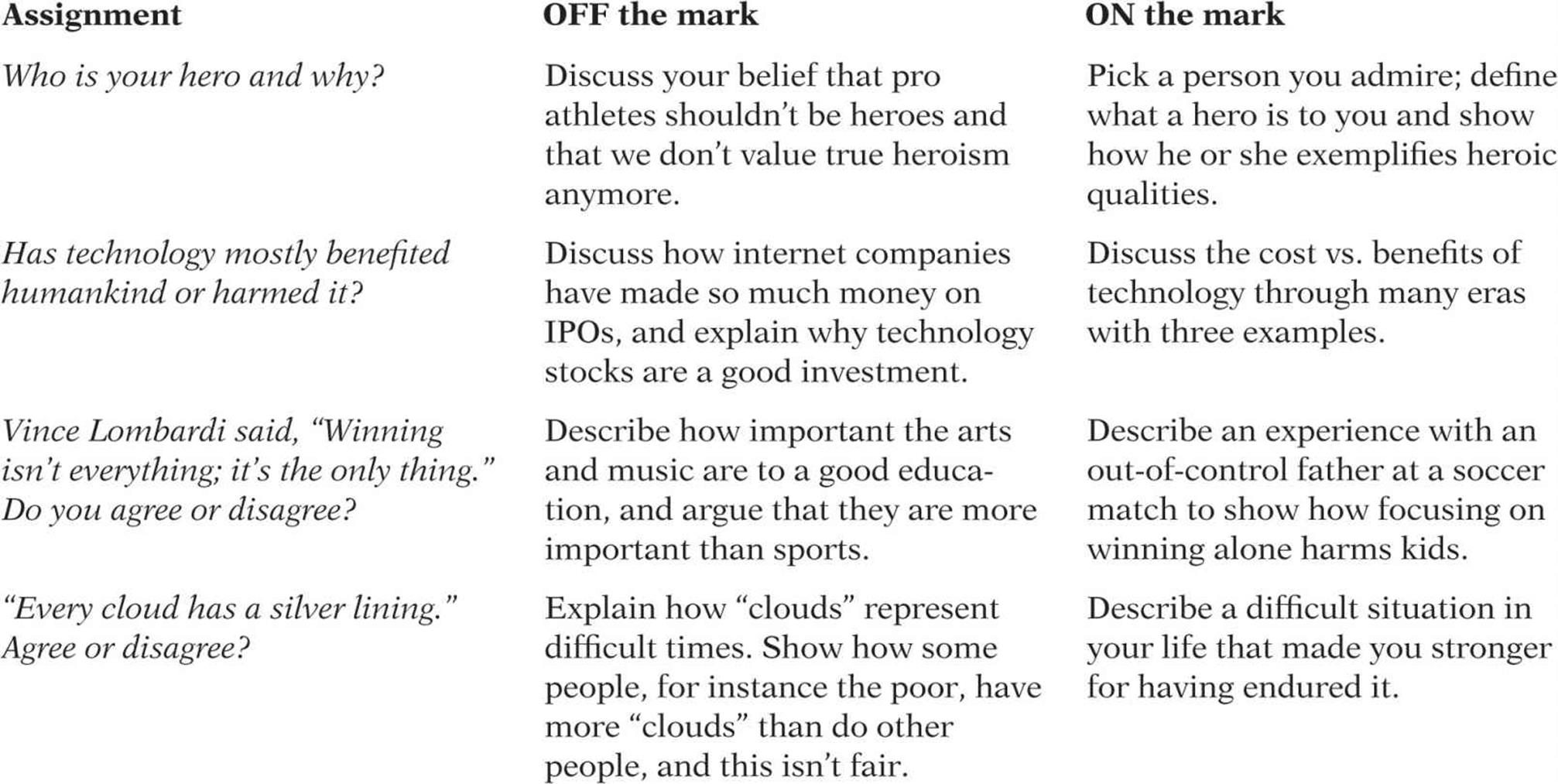SAT Test Prep
CHAPTER 12
WRITING A GREAT ESSAY
Lesson 2: Analyze the Assignment Closely
Focus on the Key Terms in the Question
Always take a minute to read the assignment question very carefully. Focus on the question first, not the quotation. Usually this question asks you to consider the relationship between two concepts. For instance, the assignment in Lesson 1 asks you to consider the “value” of “losing.” Circle these words in the question, and begin by defining them: What is losing, really, and what does it mean for an experience to have value? This focus helps you to establish your point of view. Does losing only apply to contests? Can you win a game but lose in a bigger sense? Is the thrill of victory the only value in winning, or are there more important values associated with competition?
Answer the Question
One of the most common mistakes that students make on the SAT essay is simply not focusing on the question. Rather than taking a stance that answers the question, they talk about how silly or difficult taking a stance is. Don”t do it! Your job is to take a stance. If you”re asked, “Can a loss ever be more valuable than a victory?” don”t spend all your time talking about how hard it is sometimes to achieve victory. That would miss the point. Your job is to discuss loss and whether or not it can be valuable.
Below are some examples of SAT essay questions and approaches that students could take that are off the mark (that is, they don”t answer the question) and others that are on the mark. Read these carefully and think about why the second set of responses is better than the first set.

Practice 2: Analyze the Assignment Closely
Defining Terms Practice
Below are some examples of common terms that may show up on an SAT writing assignment and that you should define if you use them in an essay. Avoid a simplistic “dictionary” definition. Think carefully about each one, and then write a simple but useful definition of each term in your own words. Include a well-chosen example if it helps to illustrate your definition.
1. Democracy
2. Courage
3. Adventure
4. Liberty
5. Political power
6. Discipline